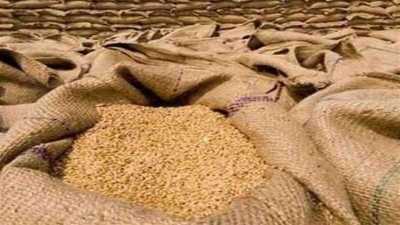How India’s public distribution system is helping reduce stunted growth

New Delhi, Feb 26 (IANS) Expansion of India’s public distribution system (PDS) has played a significant role in preventing stunted growth — a serious health concern among children in the country. According to a recent paper in the American Economic Association, it has prevented the stunting of about 1.8 million children in eight states in India.
The report showed that the food transfer programme — the National Food Security Act (NFSA) — prevented nearly 1.8 million children from being stunted and also helped raise wage incomes and improved dietary diversity in the country.
The PDS was expanded under the NFSA in 2013 and further consolidated after the onset of the Covid-19 pandemic as part of the Prime Minister’s Garib Kalyan Anna Yojana (PMGKAY) in 2020. The scheme provides for 5kg of staple grain per person per month at 3 per kg for rice and 2 per kg for wheat.
The study, based on an impact evaluation of the NFSA on child stunting, nutrition, and dietary diversity, demonstrates how food transfers alone can reduce child stunting in developing countries. Stunting is one of the leading measures used to assess childhood malnutrition. It indicates that a child has failed to reach their growth potential as a result of disease, poor health, and malnutrition.
For the study, researchers from IIM Bangalore, universities of California and Calgary in the US, selected households with ration cards from 30 villages across eight states — Andhra Pradesh, Bihar, Gujarat, Jharkhand, Karnataka, Madhya Pradesh, Maharashtra, and Odisha.
An increase in PDS transfers was found to boost dietary diversity as well as increase the consumption of nutrient-dense foods.
“We find that PDS transfers increase the share of the food budget spent on animal proteins while decreasing the share spent on grains. The magnitude of increase in nutrient intake is large enough to explain our core finding of a reduction in stunting,” the paper said.
This is because the scheme decreases out-of-pocket expenditure on staple foods, enabling people to spend more on nutrient-dense foods, the researchers said.
Notably, the effect “was largest for infants 0 to 2 years, consistent with the critical window of the first 1,000 days of life during which a child’s development is highly sensitive to nutritional intake,” the researchers said.
While extreme weather events such as poor rainfall or drought are known to substantially increase child stunting, the study found that PDS transfers led to a reduction in stunting by 7 per cent points in years with a negative rainfall shock.
“These results suggest that a nutrition-sensitive safety net like the PDS supports food security, making child nutrition outcomes less sensitive to local climate shocks,” the team said.
–IANS
rvt/




